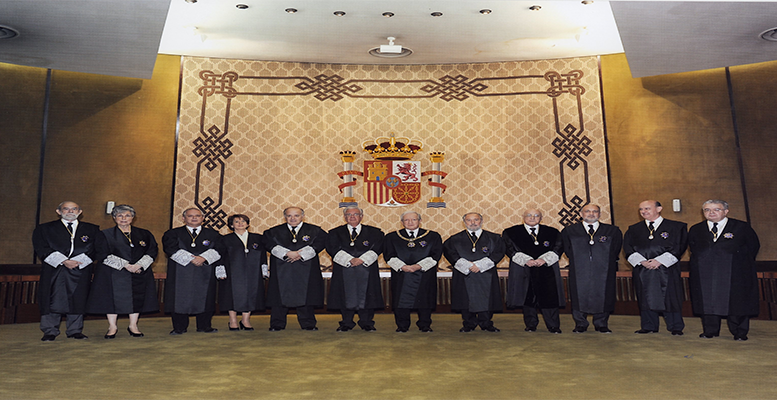Fernando González Urbaneja | The Congress will have a hearing for the 4 jurists chosen by Pedro Sánchez and Félix Bolaños (PSOE) and Pablo Casado and Teodoro García Egea (PP), managers of the two majority – necessary – parties to fill the vacant posts in the Constitutional Court. And then the MPs will vote in a disciplined manner so that the proposal gets the green light with a qualified majority of 3/5. Namely 210 MPs, the combined total of the coalition groups in the Government and the Popular Party. All votes are essential to give the bosses’ choice their blessing.
It is well known that the MPs’ mandate is personal and that they are not subject to party discipline… except to avoid consequences such as not being put forward again on a list. Voting indiscipline has been the exception in the history of Spanish democracy, but there have been some significant examples; for example, that of the current president of the Congress during one of the PSOE-PSC’s turbulent moments. However, there has not been a situation of a breach of discipline in the appointment of candidates to institutional and independent bodies in living memory.
Now the deputies have an opportunity to act in all conscience, to determine whether their bosses’ proposal is the right one. Only those who have put this forward, namely Pedro Sánchez and Pablo Casado, have described the candidates as the right ones and who respond to the constitutional mandate. The rest of the voices of authority disagree: these four candidates are not the most suitable, they all fail the test of “accredited independence” and even the test of “professional prestige”.
The case of the candidate Enrique Arnaldo (perhaps the one with the best professional profile) is the most striking in terms of dubious independence. His relations and complicity with the Popular Party are so notorious that he should have been removed from the list of candidates. Neither are the socialist candidates in a position to flaunt their merits, the greatest of which is ideological complicity; they are like-minded candidates and for that very reason should have been discarded.
The decision is now in the hands of the 210 socialist, popular and Unidos-Podemos MPs. All of them have to agree to the request of their bosses with a party discipline that takes precedence over their personal convictions. A prototypical practice of low quality, broken democracies. The Minister of Justice, who has shown little wisdom in her public comments, yesterday highlighted the value of consensus, clearly confusing the means with the ends. Negotiation and consensus are not good in themselves, they are useful instruments, but not final objectives.
The objective is to appoint professional and independent people to the High Court, the interpreter of the Constitution, the brake on abuses of the rule of law. And that objective has been set aside in this case. Consensus produces a mediocre result when the important thing is the result rather than the procedure. The Minister of Justice has demonstrated the disorderly thinking which is clouding politics.
If MPs voted according to their conscience, the partisan proposal to renew the Constitutional Court would fail and open the way for something more constitutional.





